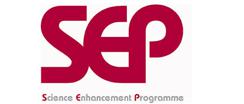- View more resources from this publisher
 Gatsby Science Enhancement Programme
Gatsby Science Enhancement Programme
Catalyst Volume 21 Issue 3: Full Magazine
This issue of Catalyst includes the following articles:
Phytoplasmas are micro-organisms that affect crop plants, modifying their growth. Botanists are seeking to counter their effects.
The Chemistry of the Noble Gases
The noble gases (Group 0 or 8 in the periodic table) are almost inert. This article shows how they were discovered and looks at their chemical and physical properties.
Ecological studies require the gathering and processing of large amounts of data. This article looks at how ant populations are studied in the field.
This article describes how a decaying log is used by many different invertebrates and vertebrates as a home and source of nutrients.
Artificial photosynthesis could provide a useful energy supply and reduce the amount of carbon dioxide in the atmosphere. Experiments are underway in labs around the world.
It's Life, But Much As We Already Know It
This article explores the claims made in a scientific paper, that bacteria from a lake in the US had DNA which was significantly different from that of all other known organisms. It also reports on the way it was published, all of which have proved controversial.
Listening to loud music can be damaging to hearing. This article explains why and how to avoid the problem.
Drilling Down/At Sea with Chikyu
Chikyu is a Japanese drilling ship capable of boring through the Earth's crust to investigate regions where the crust is thinnest. Core samples are examined using a number of scientific techniques.
Catalyst is a science magazine for students aged 14-19 years. Annual subscriptions to print copies of the magazine can be purchased from Mindsets.
Show health and safety information
Please be aware that resources have been published on the website in the form that they were originally supplied. This means that procedures reflect general practice and standards applicable at the time resources were produced and cannot be assumed to be acceptable today. Website users are fully responsible for ensuring that any activity, including practical work, which they carry out is in accordance with current regulations related to health and safety and that an appropriate risk assessment has been carried out.





